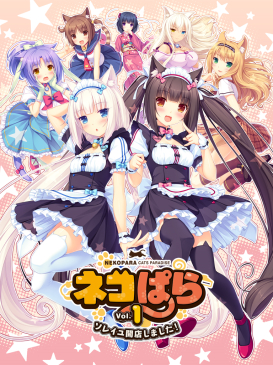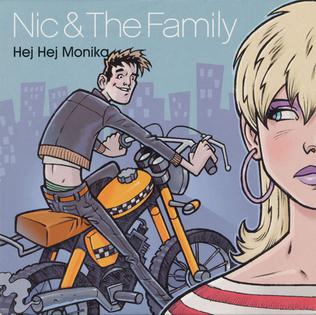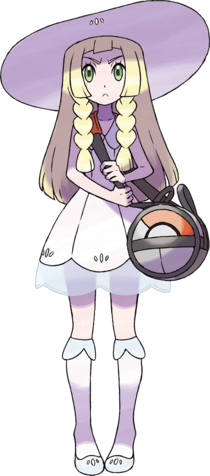
The fourth wall is a performance convention in which an invisible, imaginary wall separates actors from the audience. While the audience can see through this "wall", the convention assumes the actors act as if they cannot. From the 16th century onward, the rise of illusionism in staging practices, which culminated in the realism and naturalism of the theatre of the 19th century, led to the development of the fourth wall concept.

Haruhi Suzumiya is a fictional character introduced as the title character and heroine of the Japanese media franchise Haruhi Suzumiya, created by Nagaru Tanigawa. Haruhi first appears in the novel volumes which began in 2003, and later appears in the anime television series adaptation by Kyoto Animation, and the animated film The Disappearance of Haruhi Suzumiya. She also appears in related media in the franchise including the manga adaptation, two original net animation series, and video games. Aya Hirano voices Haruhi in Japanese in all her animated appearances and Wendee Lee voices her in the English dub. She is also portrayed by Patricia Ja Lee and Cristina Vee in the live action series ASOS Brigade.
Natsuki is a common Japanese given name. While it is a unisex name, it is more commonly used by women. It can also be used as a surname.
Ai is a Japanese and Chinese and Vietnamese given name.

Yume Nikki is a 2004 adventure game created by the pseudonymous Japanese developer Kikiyama. The player controls a girl named Madotsuki and explores her dreams, collecting 24 effects that change her appearance and equipment. Random events also occur throughout the game in the form of cutscenes and unique gameplay sequences. The game was developed using RPG Maker 2003 without a traditional plot or battle system. Gameplay instead focuses on the exploration of the dream world.

Eversion is a platform game by British indie studio Zaratustra Productions for Microsoft Windows. It was originally released as freeware in 2008, with a high-definition remake being released on Steam and Humble Bundle in 2010.

Yuno Gasai is a fictional character and the main female protagonist of the manga series Future Diary, created by Sakae Esuno. In the series, Yuno pretends to be a perfect model student on the surface, but is actually a yandere who is obsessed with the main male protagonist Yukiteru Amano, and kills unhesitatingly to protect him.

Nekopara, taglined Cats Paradise, is a series of adult visual novels developed by NEKO WORKs and published by Sekai Project. The first game in the series, Nekopara Vol. 1, was released in December 2014, taking place in a world where humans live alongside catgirls. The series follows Kashou Minaduki and Shigure Minaduki, siblings who have a family of catgirls named Chocola, Vanilla, Azuki, Maple, Coconut, and Cinnamon. It is centered around work life at Kashou's pâtisserie and home life at Shigure's family house.

Yandere Simulator is an in-development stealth action video game by YandereDev for personal computers. The story follows obsessively lovesick schoolgirl Ayano Aishi, nicknamed "Yandere-chan", who sets out to eliminate anyone she believes is attracting her "senpai" Taro's attention. The non-canon Yandere Simulator: Mission Mode follows Ayano as an assassin pursued by Nemesis, while a prequel, Yandere Simulator: 1980s Mode, following how Ayano's parents Ryoba and Jokichi met in 1989, was soft-launched on October 10, 2021.

Victoria Derbyshire is a British weekday current affairs programme, which was simulcast from April 2015 to March 2020 on BBC Two and BBC News Channel, hosted by Victoria Derbyshire. Its remit includes original stories, exclusive interviews and audience debates.

Doki Doki Literature Club! is a 2017 visual novel video game developed by Team Salvato for personal computers. The story follows a student who reluctantly joins his high school's literature club at the insistence of his friend Sayori, and is given the option to romantically pursue her, Yuri, or Natsuki. Club president Monika also features heavily in the game's plot. The game features a non-traditional plot structure with multiple endings and unlockable cutscenes with each of the main characters. Although it initially appears to be a light-hearted dating simulator, it is actually a metafictional psychological horror game that extensively breaks the fourth wall.

"Hej hej Monika" is the debut single by Swedish pop band Nic & the Family from their only album Hej Hej Skiva. The song was written by Nicolaj Schröder, as well as the Sounds members Maja Ivarsson and Felix Rodriguez. The song was released as a single shortly after the album's release.

Lillie is a character in Nintendo and Game Freak's Pokémon franchise, introduced in the 2016 video games Pokémon Sun and Moon, being a central character in the story, and has appeared in numerous Pokémon media.

Monika is a fictional character and the main antagonist of the visual novel Doki Doki Literature Club!. The character was created by Dan Salvato and voiced by Jillian Ashcraft. While Monika initially appears as the main tutor and supporting character that guides the player on their path to romance the three provided love interests, she is later revealed to be self-aware of her existence as a video game character; her words, actions and surroundings become increasingly malicious as she makes her intentions clear. She is apparently deleted at the end of the game, but returns to destroy the game itself to protect the player after the character Sayori becomes sentient in Monika's absence.
Sayori is a character in the 2017 video game Doki Doki Literature Club! She is the childhood friend and neighbor of the protagonist, pushing him into joining the literature club, of which she is a member. Over the course of the game, Sayori's cheerful personality is shown to be forced, with symptoms of depression becoming more evident. This culminates in Sayori committing suicide and being deleted from the game by the game's antagonist, Monika. She is ultimately restored by the end of the game, though her fate depends on the player's actions.

Yuri is a character in the 2017 video game Doki Doki Literature Club! She is a shy girl and someone romantically interested in the protagonist of the game. Over time, her mental illnesses become evident, including her self-harm tendencies. Described as both a dandere and kuudere, she is a member of the literature club, and a frequent rival to fellow member Natsuki. Her self-harm tendencies become more pronounced due to the game's antagonist Monika influencing the in-game files, which culminates in her stabbing herself to death after confessing her love for the protagonist. By many this was seen as an incredibly vulgar and dark turn of overwhelming emotion-proposing the event to be most shocking to those either exposed to the scene or informed of such.

Youtooz is a Canadian company that manufactures licensed collectible caricatural figurines made from vinyl. The company primarily partners with Internet personalities or public figures and memes as a way to create an additional revenue for the partners while also making merchandise available for fans and the public. The company also produces figurines based on video games and established media franchises, and has collaborated with Disney, Paramount Global, NBCUniversal, HBO, Crunchyroll, and Sony Pictures.

MiSide is an adventure game with horror elements developed by Russian indie development team AIHASTO. It was initially published as a demo on August 18, 2023 before being fully released on Steam on December 11, 2024. The game's setting and themes have been compared with that of Doki Doki Literature Club!, which explores themes of reality and simulation, blending psychological horror tension with an interactive narrative.














